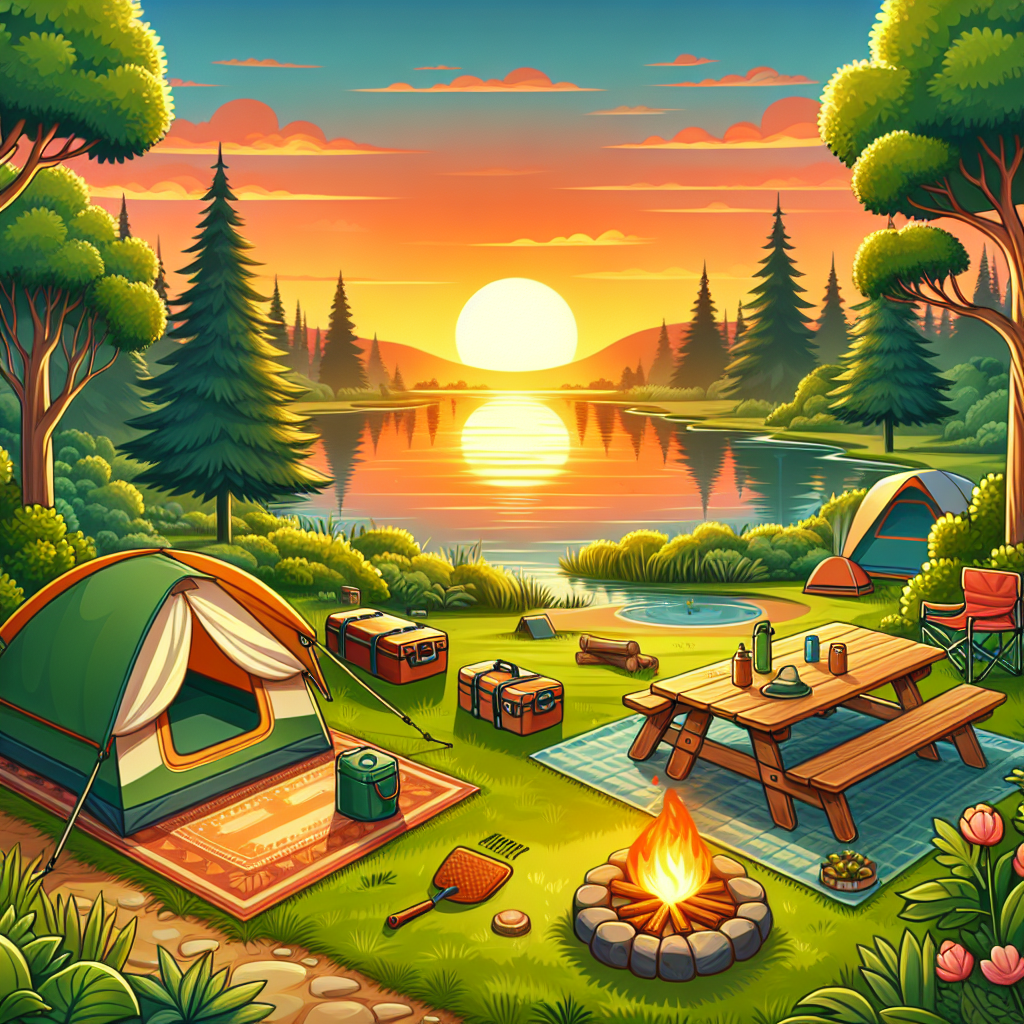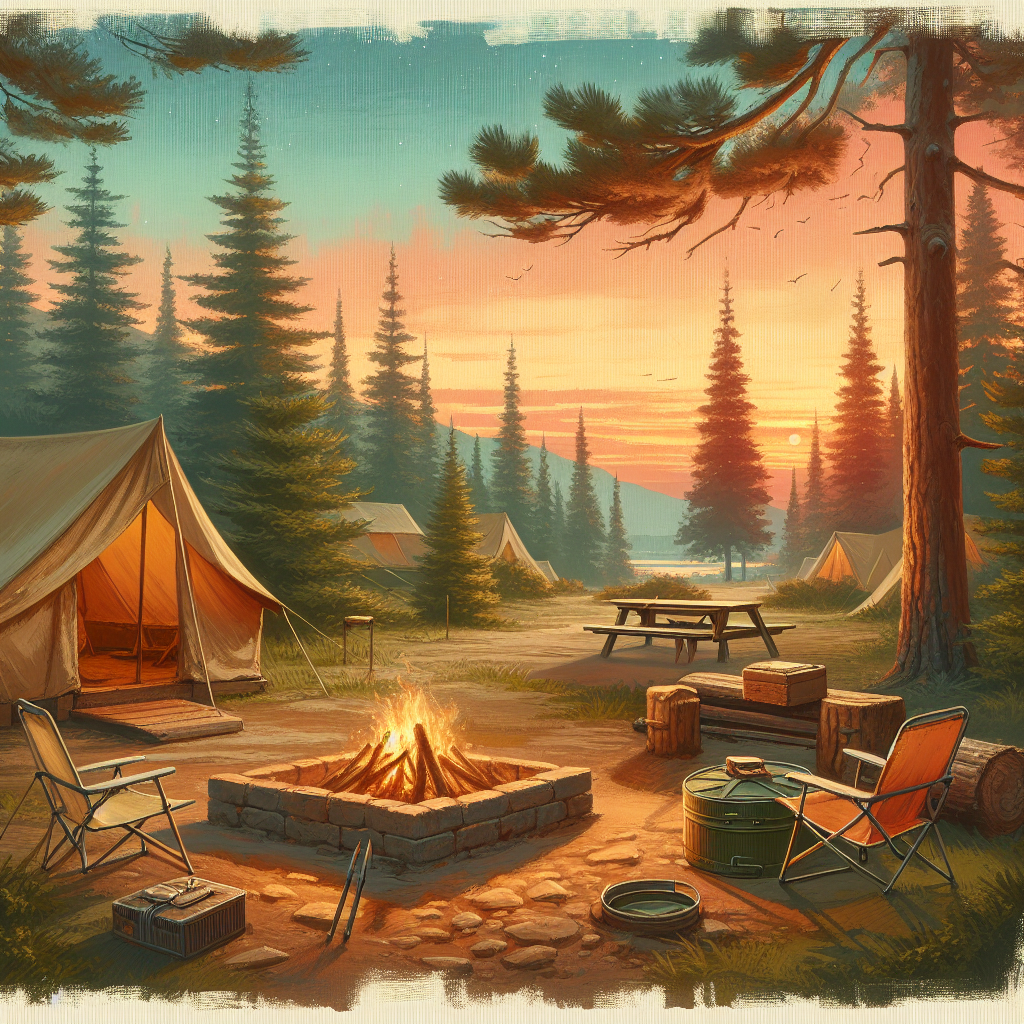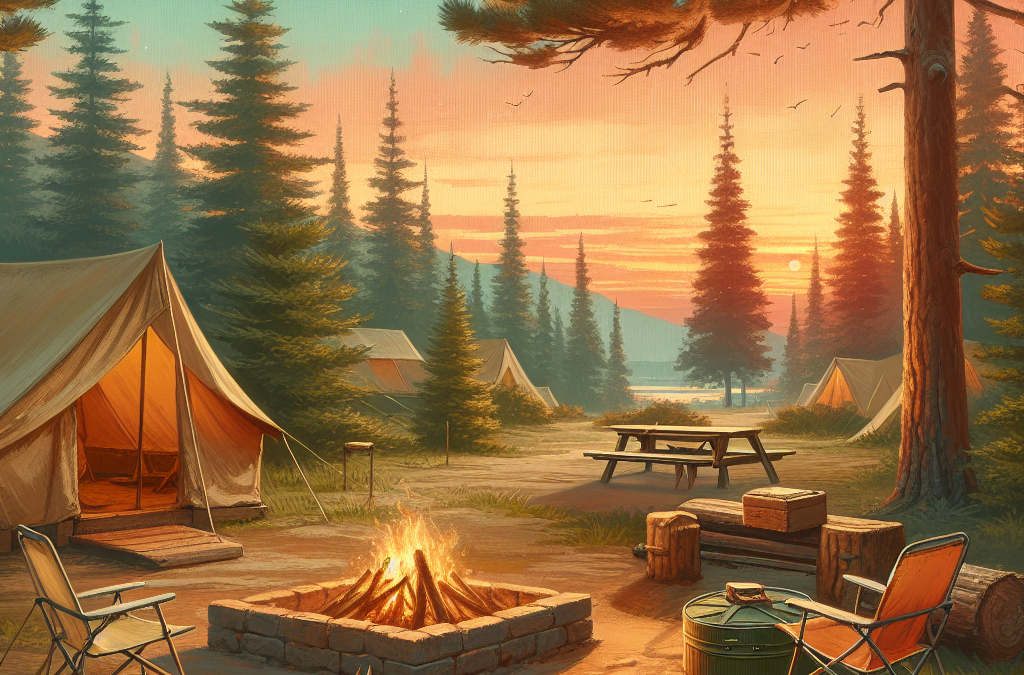As an ardent outdoors enthusiast, you understand the value of a well-situated campground. “Campground Reviews: Finding the Best Spots” fits perfectly into your outdoor wanderlust by offering a comprehensive guide to discovering the finest camping grounds. This guide refines your search by providing a curated collection of camping spots and practical reviews meticulously gathered from seasoned campers and travel experts. So, whether you’re planning your next wilderness adventure or seeking a serene hideaway from the bustling city life, this article is your outdoor companion, ready to guide you towards the captivating beauty of nature’s best spots.

Understanding Campground Features
When making the perfect camping plan, you need to have a thorough understanding of the characteristics of different campgrounds. These features can significantly affect your camping experience.
Different Types of Campgrounds
There are several types of campgrounds you might need to consider. These include national park campgrounds, state park campgrounds, private campgrounds, and RV campgrounds. Each of these types has its unique features and facilities. The kind of campground you choose should align with your camping goals.
Basic Accessories and Amenities
Campgrounds offer several amenities that can greatly enhance your camping experience. These include bathhouses, laundry facilities, camp stores, playgrounds, swimming pools, and even Wi-Fi connectivity. Availability of these amenities varies with the campground type and location.
Seasonal Availability of Facilities
The availability of certain facilities in campgrounds can greatly vary depending on the season. For instance, certain campgrounds might only open their swimming pools during summer, or their bathhouses might be closed during winter. So, when choosing a campground, keep in mind the season and what facilities you would require.
Important Points to Consider in a Campground
When choosing your ideal campground, consider factors like the availability of potable water, dump stations, and electrical hook-ups. Other crucial factors include the accessibility of the site, the size of the campsites, the type of ground, and site-specific rules.
Assessing Your Camping Needs
Once you understand campground features, it’s essential to assess your camping needs.
Identifying Camping Purpose
Is your camping trip intended for relaxation, or is it for adventure and exploration? Your camping purpose should guide you when picking your campground. If you’re seeking an adventure, consider campgrounds with hiking trails and water bodies. If relaxation is your goal, opt for campgrounds with serene surroundings.
Group Size and Space Requirements
Group size directly impacts how much space you need. More space is necessary for larger groups and those bringing along camping gear like tents and RVs. Ensure the campground you select can accommodate your needs for space.
Privacy Levels and Proximity to Others
If you’re looking for privacy, choose a campground with spacious and secluded campsites. If you’re more social, consider campgrounds with communal areas like fire pits and picnic tables.
Accessibility Needs
Consider the accessibility of the campground. Factors such as road conditions and terrain will influence your decision, especially if you intend to bring an RV or if anyone in your group has mobility restrictions.
Budget Constraints
Work with your budget. It’s important to balance your wants with what you can afford. Don’t forget to consider additional costs like park fees and cost of utilities within the campground.
Special Interest and Themed Campgrounds
Did you know there are campgrounds tailored to accommodate certain interests and themes?
Kid-Friendly Campgrounds
Kid-friendly campgrounds provide amenities and activities dedicated to children, like playgrounds and kid-friendly trails.
Pet-Friendly Campgrounds
For pet owners, opting for pet-friendly campgrounds is invaluable. These provide amenities like pet waste stations, off-leash areas, and pet-friendly trails.
Historical or Cultural Campgrounds
Such campgrounds offer you a chance to soak in the history and culture of the area. You can enjoy guided tours, museum visits or historical talks.
Adventure or Sports-Centered Campgrounds
Adventure or sports-centered campgrounds are perfect for thrill-seekers. They typically have facilities for hiking, fishing, mountain biking, and other adventurous activities.
Luxury and Glamping Sites
For those who want to enjoy the outdoors without sacrificing comfort, luxury campgrounds or glamping sites make a great choice. They offer amenities such as comfortable beds, electricity, and luxurious decor.
Tips for Online Campsite Research
Looking for the perfect campground online? Here are some tips to guide you.
Utilizing Campground Review Websites
Campground review websites are a treasure trove of first-hand experiences from other campers. They provide valuable information on various campgrounds, including experiences, amenities, and conditions of the sites.
Analyzing User Reviews and Ratings
Never underestimate the power of user reviews and ratings. They offer a peek into the actual experiences of other campers at a particular campground, helping you make an informed decision.
Importance of Looking at Campsite Photos
Photos provide a visual idea of what to expect at the campground. They help to accurately gauge the size of the campsites, the condition of amenities, and the general ambiance at the campground.
Considerations for Reservation Systems
Look at the ease of reservation at the prospective campground. How far in advance do you need to book? Are there clear refund policies in case of a cancellation or rescheduling?
Exploring Forums and Social Media Groups
Forums and social media groups offer broad perspectives from various campers. You can ask questions or discuss specific concerns that will help you make better decisions when choosing a campground.

Understanding Regional Differences in Campgrounds
Campgrounds differ based on geographical location.
Weather and Climate Considerations
Consider the region’s weather and climate conditions while choosing a campground. Regions with a lot of rainfall may not be the best for tent camping due to muddy grounds.
Wildlife and Nature Aspects
The type of wildlife and nature aspects can vary depending on the region. Some might present opportunities for fishing or bird watching, while others might have beautiful hiking trails.
Cultural Variations in Camping Practices
Different regions have different camping practices influenced by their culture. Understanding these practices can enhance your camping experience.
Legal or Regulation Differences
Be aware of the differences in rules and regulations in different regions concerning camping. It’s essential to follow these rules for a smooth camping experience.
Factors Contributing to a Great Campground
Several factors determine the quality of a campground.
Cleanliness and Maintenance Levels
A clean and well-maintained campground enhances your camping experience. Dirt and unattended facilities can make your stay uncomfortable and even pose health risks.
Quality of Facilities
Quality facilities are crucial too. Campgrounds with well-maintained facilities like bathhouses, laundry rooms, and toilets add to a great camping experience.
Customer Service
Good customer service goes a long way. Staff ready to assist whenever you need help and maternity goes a long way to translate into a pleasant camping experience.
Overall Ambiance and Environment
The campground’s overall ambiance and environment are just as important. A quiet, relaxed, and peaceful environment can greatly enhance your camping experience.
Unexpected Issues and Problems in Campgrounds
Although we’d like our camping experience to run smoothly, there might be bumps along the way.
Dealing with Bugs and Pests
Camping in the outdoors means entering the habitat of bugs and pests. Carry bug sprays and candles to keep these irksome creatures at bay.
Problems with Noise or Light Pollution
Some campgrounds might have issues with noise, especially those near motorways or airports. Light pollution might also be a problem in campgrounds near urban areas, affecting your star-gazing plans.
Theft and Safety Concerns
Safety should be a priority. Look out for campground reviews talking about safety issues, and ensure your valuables are always secure.
Issues with Overcrowding
Overcrowding might be a problem, especially during peak camping season. Be sure to book your site in advance to secure your space.
Natural Disasters
Always check the weather forecast and be prepared for excessive rain, storms, or other natural disasters.
Preparing for Your Camping Trip
Before heading out, make sure you are well-prepared.
Packing the Essentials
Bring all necessities ranging from warm clothing to camp setup gear. Don’t forget your map, first-aid kit, and a flashlight.
Planning for Food and Meals
Plan your meals and bring enough food for your trip. Remember cooking gear if you plan to prepare meals at the site.
Creating a Schedule or Itinerary
Having a schedule or itinerary will help you maximize your trip. Plan in advance any activities you’d love to do during your camping trip.
Consideration for Children or Pets
If you’re bringing children or pets, plan for their needs too. Pack their essentials and know the campground rules concerning them.
Common Mistakes to Avoid When Choosing a Campground
Not all campgrounds are created equal, and there are some common pitfalls to avoid when making your selection.
Ignoring User Reviews and Ratings
Ignoring user reviews can lead to unpleasant surprises. These reviews hold valuable information about the campground from previous users’ experiences.
Choosing Based Solely on Price
While it’s important to stick to your budget, choosing a campground based on price only might lead to other unforeseen inconveniences.
Not Considering Location Accessibility
Ensure the campground you choose is accessible, particularly if you’re bringing along sizable camping gear.
Overlooking Specific Individual Needs
Do not overlook any specific needs you or anyone in your group might have. This could be anything from dietary restrictions to disability accommodations.
Ignoring Safety Measures
Safety should never be compromised. Ensure the campground you choose has sound safety measures in place.
Final Confirmation and Booking
Before confirming your booking, make sure to double-check all details.
Double Checking All Details
Ensure all information about your booking is correct. Verify the dates, number of guests, and specific site number.
Understanding Cancellation Policies
Ensure you understand the campground’s cancellation policy in case changes in plans occur.
Confirming All Payments and Fees
Confirm the total amount you have been charged. Look out for any additional fees that may not have been previously mentioned.
Securing a Confirmation or Receipt
Finally, once your booking is complete, make sure you secure a confirmation or receipt. This will serve as proof of your reservation and helps solve any disputes that may arise.
Camping is an incredible experience when planned properly. Understanding the key features of campgrounds and assessing your needs will help you choose the perfect site. This guide will hopefully serve as a helpful tool in planning your next camping trip!

